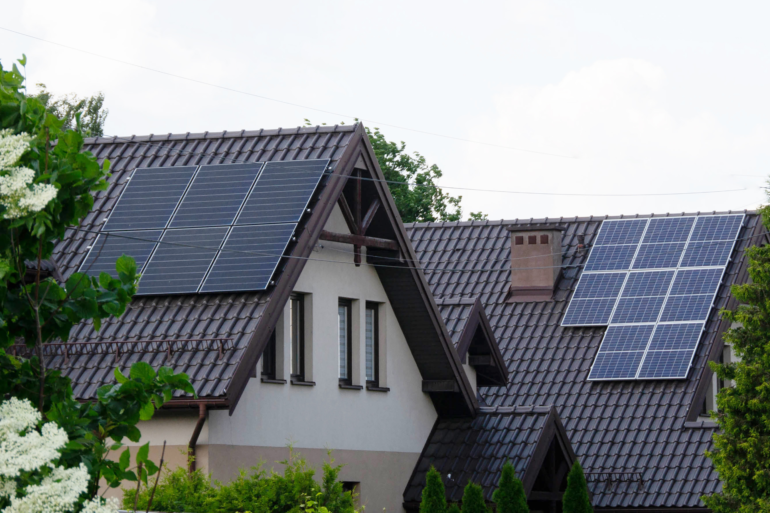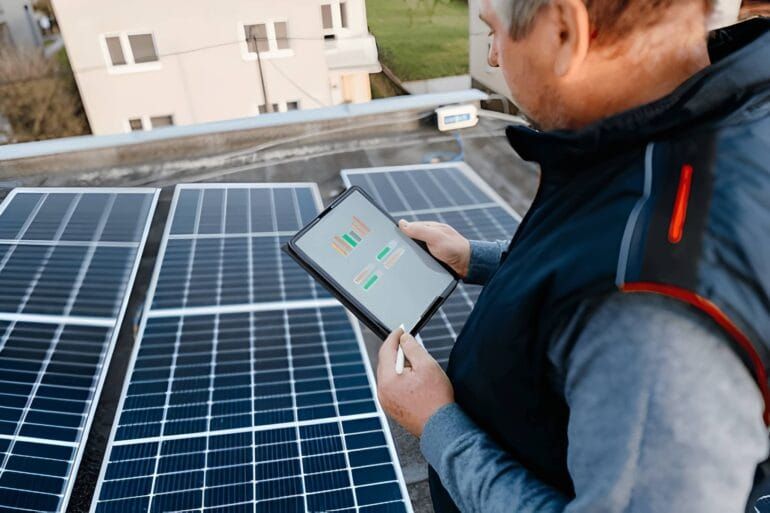Introduction
In an era marked by a growing concern for environmental sustainability and a quest for renewable energy sources, residential solar power has emerged as a beacon of hope. This comprehensive guide will delve into the world of residential solar, exploring its benefits, installation process, financial implications, and the positive impact it can have on both the environment and your pocket.
Understanding Residential Solar Energy
Residential solar energy involves harnessing the power of the sun to generate electricity for your home. Unlike traditional sources of energy, solar power is clean, renewable, and abundant. Solar panels, typically mounted on rooftops, capture sunlight and convert it into electricity through the photovoltaic (PV) effect. This chapter will provide an in-depth overview of how solar systems work and the components involved.
Benefits of Residential Solar
The advantages of adopting residential solar power are multifaceted. From reducing your carbon footprint and lowering utility bills to increasing the value of your property, this chapter will explore the numerous benefits that come with embracing solar energy for your home.

We’ll also discuss how governments and local authorities often incentivize solar installations through rebates and tax credits.
The Installation Process
Embarking on the journey to solar energy requires a clear understanding of the installation process. This chapter will guide you through the steps involved, from initial assessments and system design to the actual installation of solar panels. We’ll address common concerns and demystify the technical aspects, ensuring that you are well-prepared to make informed decisions.
Financial Implications
While the initial investment in a solar system may seem daunting, the long-term financial benefits are significant. This chapter will explore the various financing options available, including solar loans, leases, and power purchase agreements. We’ll delve into the return on investment (ROI) of residential solar, considering factors such as energy savings, tax incentives, and potential resale value.
Maintenance and Upkeep
To maximize the efficiency and lifespan of your solar system, proper maintenance is essential. This chapter will provide practical tips on caring for your solar panels, monitoring system performance, and addressing common issues. Understanding the maintenance requirements will empower you to enjoy hassle-free solar energy for years to come.
Environmental Impact
Beyond the financial advantages, solar power plays a pivotal role in mitigating climate change. This chapter will explore the environmental impact of solar energy, including its contribution to reducing greenhouse gas emissions and dependence on non-renewable resources. By choosing residential solar, you become a crucial part of the global effort to create a sustainable and eco-friendly future.
Overcoming Common Myths and Misconceptions
Despite the numerous benefits of residential solar, there are still myths and misconceptions that might dissuade some homeowners from making the switch. In this chapter, we’ll debunk common myths surrounding solar energy, addressing concerns about cost, efficiency, and aesthetics. By dispelling these misconceptions, you can make an informed decision based on accurate information.
Technological Advancements in Solar Energy
The world of solar energy is continually evolving, with ongoing advancements in technology. This chapter will explore the latest innovations in solar panel design, energy storage solutions, and smart home integration. From more efficient photovoltaic cells to user-friendly monitoring systems, staying abreast of technological advancements can help homeowners make future-proof decisions when investing in residential solar.
Community Solar Initiatives
Not every homeowner has the ability to install solar panels on their property. This chapter will introduce the concept of community solar initiatives, where residents can collectively invest in a solar farm and share the benefits. We’ll discuss how community solar projects promote inclusivity, enabling a broader segment of the population to access clean and affordable energy.
The Future of Residential Solar
As we look ahead, the future of residential solar holds great promise. This chapter will explore emerging trends, policy developments, and the potential integration of solar energy into smart cities. From advancements in energy storage to the widespread adoption of solar-powered electric vehicles, the future of residential solar is set to redefine the way we power our homes and communities.
Social and Economic Impacts of Residential Solar
Beyond its environmental and financial implications, residential solar has far-reaching social and economic impacts. This chapter will delve into how solar installations create jobs, stimulate local economies, and contribute to community resilience. We’ll also explore the social benefits of energy independence, as homeowners become active participants in shaping their energy future and reducing dependence on centralized power grids.
Integrating Solar into Urban Planning
Urban areas face unique challenges in adopting residential solar, but they also offer exciting opportunities for innovation. This chapter will discuss how urban planners and architects can integrate solar solutions seamlessly into the fabric of cities. From solar-integrated buildings to green rooftops, the urban landscape can be transformed into a more sustainable and energy-efficient environment.
Advancing Energy Storage Technologies
One of the key challenges in maximizing the potential of residential solar is effective energy storage. This chapter will delve into the latest advancements in energy storage technologies, such as improved battery systems and innovative storage solutions. As energy storage becomes more efficient and affordable, homeowners can store excess energy generated during peak sunlight hours for use during periods of low or no sunlight.
Conclusion
Residential solar energy is not just a technological innovation; it’s a lifestyle choice that benefits both individuals and the planet. This comprehensive guide has provided insights into the world of residential solar, from its environmental impact to the financial implications for homeowners. Embracing solar power for your home is not just a step towards energy independence but also a contribution to a cleaner, greener future. So, let the sunshine on your home illuminate a path toward a sustainable tomorrow with residential solar energy.







